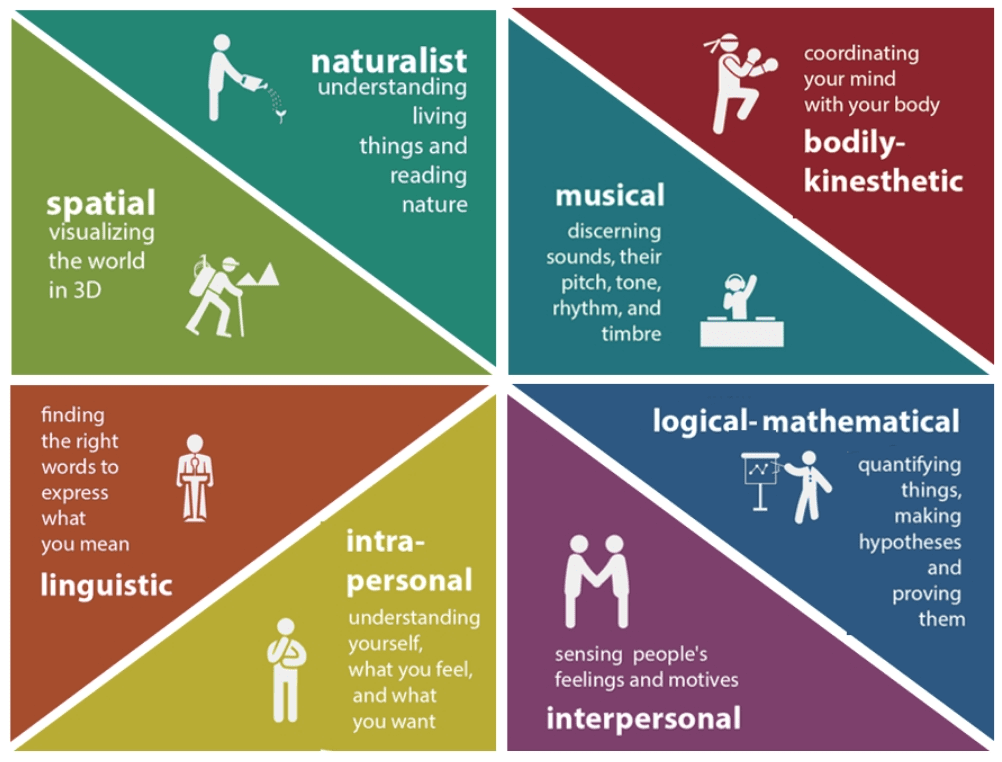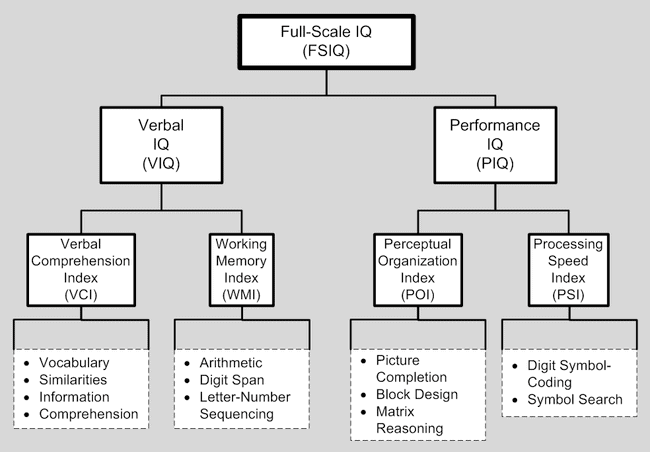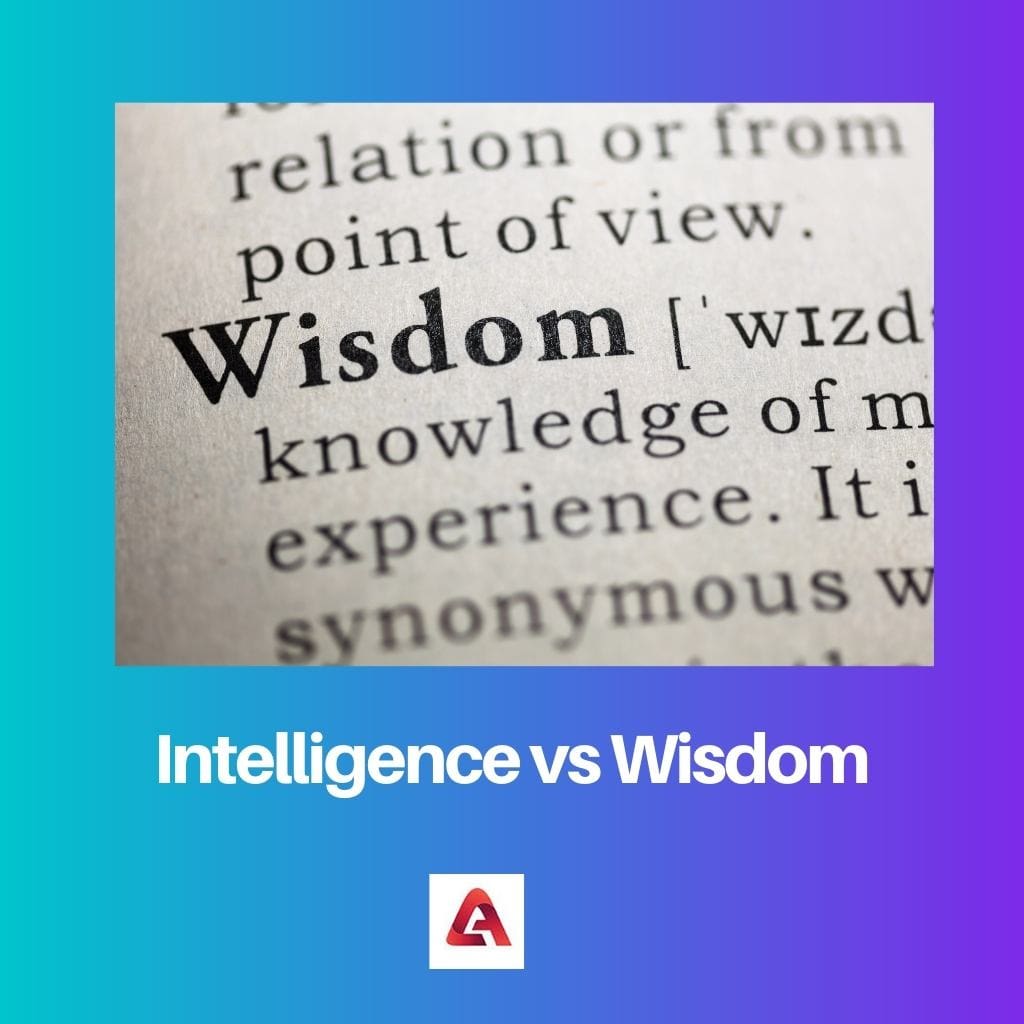Advertisement
A neuroscientist on wisdom vs. intelligence & why they both matter.

Wisdom and intelligence are both great qualities to have—but they certainly aren't mutually exclusive. Intelligence doesn't guarantee wisdom , and vice versa. In fact, while they may seem like similar traits, they're actually quite different, though it is possible to have both.

How is wisdom different from intelligence?
First things first: What do the two actually mean? By definition, wisdom (the quality of being wise) is described as "the quality of having experience, knowledge, and good judgment." To be wise is to have deep insight and understanding, and wise people may be thought of as old souls .
As neuroscientist and author of The Source Tara Swart, M.D., Ph.D., explains to mbg, "Wisdom is the life lessons you pick up through experience and store in your neurons but don't consciously recall."
Intelligence, on the other hand, is defined as "the ability to acquire and apply knowledge and skills." It's about intellect and the application of that intellect. Swart notes intelligence can be defined in several ways, including emotional intelligence , "But the traditional definition is about using your logic to solve problems and make decisions."
So the difference then is where these qualities come from and how we use them. Wisdom comes through experience, perhaps without us even realizing it, and intelligence, in all its many forms, is often something inherent (or something we consciously work on improving).
Wisdom "allows you to recognize patterns and make decisions based on intuition ," Swart says, adding that it's more of a "felt" sense that something is right or wrong. Intelligence, she explains, "is more about data and 'knowing.'"
Is one more important?
Some people may favor intelligence over wisdom, or wisdom over intelligence, depending on their values, goals, and so on. But according to Swart, both are equally important.
However, she says, "As you grow in wisdom and experience, intuition can become far more powerful than logic alone."
Ideally, you can exercise both, so you can not only approach a situation logically (intelligence) but tap into your deeper sense of wisdom or intuition to read between the lines or see the big picture.
As Swart puts it, it's great when your wisdom and intelligence are aligned, "but when logic tells you one thing and intuition tells you another, you have to learn which leads to better outcomes for you."
How to discern wisdom from intelligence.
So, when the moment strikes, how can you know whether certain thoughts are coming from a place of wisdom or a place of intelligence (both in yourself and in another)? Here are a few strategies:
Notice where it's coming from.
Swart explains that logic tends to "come from your head and is based on gathering facts and making a decision that you know the reasons behind."
Wisdom, on the other hand, "is felt usually in the gut or heart and comes with a deep sense of feeling that this is right for you, not just right in general," she says. It can often be accompanied by visceral sensations like goose bumps or even tears, she adds.
Notice how you reached the conclusion you came to; was your thought process more linear and logical? That's intelligence. Or was it more big picture, and allowed you to draw on past experiences and patterns? That's wisdom.
Write on it.
Further, if you want to get better at distinguishing between the two, Swart says journaling can help . Try reflecting on the times your intelligence may have served you better than your wisdom, and vice versa. You may find one is stronger than the other or leads to better outcomes when you follow it.
Ask others how they make decisions.
And the next time you're speaking with someone and want to know whether they're showing wisdom or intelligence, Swart says you can simply ask them directly where their reasoning is coming from and what it's based on.
You can usually get a sense from their answer, as they may say something that's clearly more logical (intelligence) versus something more big picture that's related to their own experience (wisdom).
The bottom line.
While one is no better than the other, both wisdom and intelligence are helpful qualities to have. Throughout our lives, wisdom is gained over the years, and on top of that, we're always presented with opportunities to exercise our intelligence by learning new information. The key is learning to hone both so they can work in tandem, and you can approach any situation with both logic and a deeper understanding .
Enjoy some of our favorite clips from classes
What Is Meditation?
Mindfulness/Spirituality | Light Watkins
Box Breathing
Mindfulness/Spirituality | Gwen Dittmar
What Breathwork Can Address
The 8 limbs of yoga - what is asana.
Yoga | Caley Alyssa
Two Standing Postures to Open Up Tight Hips
How plants can optimize athletic performance.
Nutrition | Rich Roll
What to Eat Before a Workout
How ayurveda helps us navigate modern life.
Nutrition | Sahara Rose
Messages About Love & Relationships
Love & Relationships | Esther Perel
Love Languages

Here's Your Perfect Nighttime Routine, Based On Your Zodiac Sign
Sarah Regan

This Zodiac Sign Is Most Likely To Struggle With Family Drama—Is It Yours?

This Zodiac Sign Is The Best Gift Giver Every Holiday Season

This Zodiac Sign Is The Hardest To Buy A Gift For—Is It Yours?

This Week's Horoscope Features Not One But Four Retrograde Planets
The AstroTwins

Here's How To Plan The Perfect Date—Based On Their Zodiac Sign

Popular Stories
Wisdom vs Intelligence (Differences + Similarities)

Would you rather be wise or intelligent? Most people would say, “both.” On this page, we will briefly look at wisdom vs intelligence and what some of the greatest minds have to say about being "smart."
Are Wisdom and Intelligence the Same?
Wisdom and intelligence are both considered to be positive qualities involving the brain. But these are often used interchangeably, which isn’t exactly correct. These two terms are more accurately associated with the mind, and they are just pieces in larger theories of psychology.
What Is Wisdom?
Let’s look at how the dictionary defines wisdom. The Merriam-Webster Dictionary defines “wisdom” as the “ability to discern inner qualities and relationships,” or “good judgment.” The Cambridge Dictionary offers a similar definition, although it clarifies that one uses knowledge or experience to make decisions and judgments. Often, these decisions and judgments have to do with “right” and “wrong.”
When I ask you to picture a person who is “wise,” who do you picture? It might be your grandparents. Or an old philosopher. Maybe it’s the owl from Winnie the Pooh. Either way, it’s probably someone older. Our culture tends to associate wisdom with age.
At what age do you “gain” wisdom? When do you have a sense of right or wrong? That last question is not always easy to answer. Earlier developmental psychologists believed that children had a sense of right and wrong before they could read. But the reasons they have given for their conclusions don’t always take context, intention, or the cognitive abilities of the child into consideration. If a child associates punishment with “wrong” behavior, have they truly developed a sense of right and wrong?
Wisdom in Psychology
For many, wisdom isn’t just about having knowledge. It’s about seeking knowledge, and using it in different ways. Aristotle believed that wisdom could be used to seek truth and explore things that were bigger than ourselves. He also believed that wisdom could be used to make good decisions in everyday life.
More current theories of wisdom focus more on the practical application of wisdom. For example, American psychologist Robert Sternberg has developed a “balance” theory of wisdom. He defines wisdom as “the use of one’s intelligence, creativity, common sense, and knowledge and as mediated by positive ethical values toward the achievement of a common good through a balance among (a) intrapersonal, (b) interpersonal, and (c) extrapersonal interests.”
Wisdom, according to Sternberg, requires more than just intelligence. And he argues that wisdom could be more important than intelligence. He says, “Although currently, our societies tend to emphasize analytical intelligence in their assessments of individuals in school, college, and beyond, one could argue that assessments of wisdom would be more valuable. When citizens and leaders fail in the pursuit of their duties, it is more likely to be for lack of wisdom than for lack of analytical intelligence.”
What Is Intelligence?
Wisdom could be more important than intelligence . But, as Sternberg says, college admissions officers aren’t exactly looking for the wisest students. They’re looking for scores that access a student’s intelligence.
Intelligence is more likely to be tested than wisdom. It certainly appears to be easier to test than wisdom. But as you’ll see, intelligence tests may not be what they’re cracked up to be.
Before we dive into intelligence, let’s talk about the definition of this term.
Merriam-Webster defines intelligence as “the ability to learn or understand or to deal with new or trying situations.” Cambridge says it’s “the ability to learn, understand, and make judgments or have opinions that are based on reason.” Whereas wisdom is based on right and wrong, intelligence deals more with practical facts.
Intelligence in Psychology
Robert Sternberg also has a theory of intelligence, known as the “Triarchic Theory of Intelligence.” He also agrees that intelligence deals more with practical decisions in everyday life. His theory suggests that “successful intelligence is made up of three types of intelligence:
- Analytical intelligence (the ability to solve problems)
- Creative intelligence (the ability to use experience and skills to adapt to new environments)
- Practical intelligence (the ability to adapt to changing environments)

Sternberg is not the first psychologist to propose that there are multiple types of intelligence. Some might say that his theory is a response to Howard Gardener’s theory on the nine types of intelligence. These types include verbal-linguistic intelligence, musical intelligence, and bodily-kinesthetic intelligence.
Measuring Intelligence in Psychology
These theories of multiple intelligences are relatively new. One could argue that they are a response to the way that intelligence was defined and measured throughout the 20th century.
The first intelligence test was developed in 1904, the same year that “general intelligence” was introduced by British psychologist Charles Spearman. But the tests that we use nowadays look very different than the original IQ tests . Modifications to the tests have attempted to adapt to the changing world, as well as overcome racial or cultural biases that were present in earlier versions of these tests.
We can measure a culture's intelligence throughout time and see that in the past millennia, it's been increasing, mostly due to nutrition and education. This is called the Flynn Effect .

IQ tests still exist today, including the popular Wechsler Adult Intelligence Scale. But as psychologists explore different types of intelligence, one number doesn’t always seem sufficient to measure your ability to understand the world.
Wisdom Vs Intelligence Examples
Reddit posters have some great examples to illustrate the difference between wisdom and intelligence:
- "Intelligence is knowing that Frankenstein was the doctor. Wisdom is knowing that Frankenstein was the monster.
- "Intelligence is how efficiently knowledge can be absorbed. Wisdom is how efficiently knowledge can be applied."
- "Intelligence is the ability to answer questions, Wisdom is asking the right ones."
Gardener’s theory of multiple intelligences has been around since the 80s, but like the definition of measurement of intelligence, it continues to change. In 2009, Gardener proposed that a “moral” intelligence could also be included in his list of multiple intelligences.
Would you consider “moral” intelligence to be wisdom? Or, like Sternberg, do you believe that wisdom requires more than intelligence: it requires creativity, common sense, and other types of knowledge?
Let’s sum things up.
If people consider you to be wise, it’s likely that they consider you to be intelligent as well. But you can be “intelligent” without being wise. Someone can acquire a lot of skills and knowledge without having a moral compass. Knowing the difference between right and wrong, and using that knowledge to make decisions, is what makes you wise.
How to Gain Wisdom vs Intelligence
We gain intelligence from our life experiences. Reading a book increases our intelligence. Going to a music class increases our intelligence. Working in the garden alongside our grandparents increases our intelligence. We may develop intelligence in different areas, but all of these experiences bolster our intelligence. From our intelligence, we can recite facts, complete tasks, and solve problems.
Wisdom is gained from other types of life experiences. Let's say you are gardening alongside your grandparents and they begin to tell you about their life. You hear about how your grandfather fought in the war and how the country's mindset changed before and after that time period. They share wisdom on human nature, love, and kindness. They may be passing on their wisdom to you, but this retelling does not make you wise. You gain wisdom when you think through that information in your mind and apply it to the world you are living in. When you encounter situations with your friends or family, you step back. How do the experiences of other people change your perspective? What information could you not know? Asking these types of questions, and searching for the answers, is a sign of wisdom.
Quotes About Wisdom vs Intelligence From the Greatest Minds
The search for wisdom vs intelligence never ends. The following quotes about wisdom, intelligence, and knowledge may point you in the direction of some of the world's greatest minds and most important literature. Keep thinking, keep learning, and keep searching!
Quotes About Wisdom
"The only true wisdom is in knowing that you know nothing." -Socrates
"By three methods we may learn wisdom: First, by reflection, which is noblest; Second, by imitation, which is easiest; and third by experience, which is the bitterest." -Confucious
"Knowledge comes, but wisdom lingers. It may not be difficult to store up in the mind a vast quantity of facts within a comparatively short time, but the ability to form judgments requires the severe discipline of hard work and the tempering heat of experience and maturity." -Calvin Coolidge
"It is impossible to love and be wise." -Francis Bacon
"Wisdom is the reward you get for a lifetime of listening when you'd have preferred to talk." -Doug Larson
"It requires wisdom to understand wisdom: the music is nothing if the audience is deaf." -Walter Lippmann
"Knowledge is proud that it knows so much; wisdom is humble that it knows no more." -William Cowper
"A wise man is superior to any insults which can be put upon him, and the best reply to unseemly behavior is patience and moderation." -Moliere
"Turn your wounds into wisdom." -Oprah Winfrey
"To be satisfied with a little, is the greatest wisdom; and he that increaseth his riches, increaseth his cares; but a contented mind is a hidden treasure, and trouble findeth it not." -Akhenaton
"Wisdom is not wisdom when it is derived from books alone." -Horace
"A smart man makes a mistake, learns from it, and never makes that mistake again. But a wise man finds a smart man and learns from him how to avoid the mistake altogether." -Roy H. Williams
Quotes About Intelligence
"Knowledge is of no value unless you put it into practice." -Anton Chekov
"The man of knowledge must be able not only to love his enemies but also to hate his friends." -Friedrich Nietzsche
"The test of a first-rate intelligence is the ability to hold two opposed ideas in mind at the same time and still retain the ability to function." -F. Scott Fitzgerald
"The measure of intelligence is the ability to change.” -Albert Einstein
"Whatever the cost of our libraries, the price is cheap compared to that of an ignorant nation.” -Walter Cronkite
"An intellectual is someone whose mind watches itself. I like this, because I am happy to be both halves, the watcher and the watched. 'Can they be brought together?' This is a practical question. We must get down to it. 'I despise intelligence' really means: 'I cannot bear my doubts.'" -Albert Camus
"It takes something more than intelligence to act intelligently.” - Crime and Punishment
“Men have called me mad; but the question is not yet settled, whether madness is or is not the loftiest intelligence– whether much that is glorious– whether all that is profound– does not spring from disease of thought– from moods of mind exalted at the expense of the general intellect.” - Complete Tales and Poems
“If we encounter a man of rare intellect, we should ask him what books he reads.” -Ralph Waldo Emerson
“Crazy people are considered mad by the rest of the society only because their intelligence isn't understood.” -Wei Hui
Related posts:
- The Psychology of Long Distance Relationships
- Operant Conditioning (Examples + Research)
- Beck’s Depression Inventory (BDI Test)
- What is Intelligence? (9 Types Controversy + Examples)
- Free Online IQ Test (No Email + 5 Mins + Instant Results)
Reference this article:
About The Author

Free Personality Test

Free Memory Test

Free IQ Test

PracticalPie.com is a participant in the Amazon Associates Program. As an Amazon Associate we earn from qualifying purchases.
Follow Us On:
Youtube Facebook Instagram X/Twitter
Psychology Resources
Developmental
Personality
Relationships
Psychologists
Serial Killers
Psychology Tests
Personality Quiz
Memory Test
Depression test
Type A/B Personality Test
© PracticalPsychology. All rights reserved
Privacy Policy | Terms of Use

Wisdom VS Intelligence: 7 Key Differences
Why would anyone want to know the difference between wisdom vs intelligence? Is one better than the other? Wisdom and intelligence are two highly desirable traits and are equally important for navigating through life successfully.
However, the two concepts are often confused as one and the same . Sometimes they are misunderstood as mutually exclusive when they are in fact distinct and separate . In other words, thinking that being intelligent means being ‘wise’, or having wisdom means being intelligent.
Many people, including psychologist Robert Stemberg , believe that wisdom can take you where intelligence cannot. For example, exercising judgment and making decisions based on how previous behaviors shaped their experiences .
Quite intriguing, isn’t it? Join me as we explore what it means to have wisdom, how it differs from intelligence, and how both characteristics can positively influence life outcomes.
Table of Contents

What Is Wisdom?
Wisdom is a characteristic that shows in one’s ability to apply knowledge gained through experience to achieve better life outcomes. Knowledge is information, such as facts and processes (how to do things), that is continuously acquired throughout one’s lifetime.
Throughout the lifespan, a rich history of knowledge gained from experiences is created. This is different from knowledge gained through reading or academic learning.
Life lessons (knowledge) gained from experiences are automatically stored in the brain and can be applied to make better choices.
However, not many people are capable of accessing the information until they’re older or after developing greater self-awareness .
Benefits of Wisdom
Wisdom teaches lessons from personal experiences. You can gain experience cognitively from reading materials, but practical experience comes from living through it along with all the accompanying negative and positive feelings and emotions. Other benefits of wisdom worth noting include:
- Ability to discern right from wrong (also called intuition)
- Ability to view adversity as an opportunity for growth
- Being more accepting of uncontrollable life’s challenges and uncertainties
- Ability to spot danger from afar and avoid it
- Better sense of direction that comes intuitively
- Developing greater patience and therefore less likely to experience anxiety
- Greater vision and leadership skills
- Knowing how to attain peace, happiness, and contentment with greater ease
What Is Intelligence?
Intelligence is a psychological characteristic commonly described as the ability to apply acquired academic knowledge or facts to perform tasks or make everyday decisions .
You are, in essence, “using your logic to solve problems and make decisions, ” says neuroscientist and author of The Source , Tara Swart, M.D., Ph.D. The author was quoted in an article published by Mind Body Green .

Knowledge is a key factor and a common denominator in wisdom and intelligence . It refers to a collection of information and skills gained through experience and is similar to wisdom , to the extent that you can gain it through experience.
Benefits of Intelligence
It feels good to be called intelligent because it validates your intellectual abilities. Saying “Thank you,” is enough.
Those with narcissistic traits and tendencies , however, tend to get cocky when praised for their intelligence. “Of course, I’m intelligent, and don’t forget smart, charming, and good-looking,” is something a narcissist would say.
The point is that intelligence is a highly sought-after attribute by humankind because intelligence makes them feel powerful . Other key advantages of high intellect include:
- Better grades at school
- Higher-paying jobs
- Ability to think critically, analytically, and rationally
- Ability to make logical decisions
- Admiration by others (something highly desirableby grandiose narcissists )
- Ability to solve complex problems, e.g., involving mathematics or inductive or deductive reasoning. People with Extraverted Sensing (Se) are inductive thinkers .
- Ability to predict future outcomes based on knowledge of the appropriate data
- Less likely to get in trouble e.g., because of an understanding of crime and punishment
Wisdom vs Intelligence: 5 Noteworthy Differences
The core difference is seen in how each of the two qualities is acquired and used , as you will notice in the distinct differences highlighted below.
#1. Wisdom grows with age, but not necessarily intelligence
You might have heard the sentiment “The older, the wiser.” And there might be some truth to it; at least that’s what researchers have concluded.
One study on the relationship between wisdom and aging found “e mpirical evidence that social wisdom improves with age .” Researchers came to this conclusion after making a comparison between older and younger participants in the study.
Greater wisdom is seen in older people’s ability to use a wider range of reasoning and consider different outcomes when faced with various scenarios. Those scenarios include making choices, resolving conflicts, dealing with uncertainties, and deciding when to take risks.
We, as humans, don’t necessarily grow more intelligent (at least not automatically) as we age. Sure enough, we may acquire knowledge through day-to-day interactions, but remember knowledge is acquired information and skills.
It does not equal cognitive intelligence , which entails judgment, reasoning, and thinking analytically.
#2. Wisdom comes through life experience, unlike intelligence
“Experience teacheth wisdom,” at least that’s the age-old belief. It makes sense that we learn from experience, whether the experience was pleasant or unpleasant.
If unpleasant, we know not to do a certain thing again, providing we’re aware that certain actions or activities will lead to terrible consequences.
We are wiser if we can use the knowledge gained, especially from bad experiences, to exercise sound judgment in the future .
I don’t believe anyone can say for a fact that people with more life experience under their belt are more intelligent than those who don’t. It is a hasty generalization at best.
Intelligence is something you have to consciously work on improving . In fact, a person can be extremely intelligent yet lack experience in various areas as well as wisdom.
#3. Intelligence can be willfully improved, but not wisdom
You can read a book, take a course, or read for a degree and you’ll increase intelligence and knowledge just like that. Gaining more practical knowledge is also a decision you can make at any given time.
While, according to one study , wisdom is “subject to continual change,” you simply can’t force it or make it happen at will.

You can’t wake up one day and say, I’m going to develop or increase my wisdom today, at least not exponentially . The only fresh wisdom you’ll gain is from new or different experiences you have on that day .
Unlike the gathering of intellectual information, wisdom is acquired over time and through different life experiences.
#4. Wisdom leads to second-nature decisions, unlike intelligence
The use of intelligence to make decisions requires the application of facts, logic, and/or reasoning. Besides, the individual will first have to be intelligent in order to engage in the process of logical thinking and use the result to make informed decisions. That’s only one issue.
Now, let’s imagine two people, one who’s wise and the other intelligent . Both are given the task of making a decision pertaining to the same problem.
The intelligent person begins to use academic knowledge to figure out the answer. Who knows, they might even say, “Let me Google that and get back to you.”
The wise person relies on past experiences, patterns, and intuition, as seen in those with INTJ Personality . They also lean on their ability to make quick judgments from the facts and are able to come to a decision quickly, without relying on books or googling for tips.
Consider this response as wisdom in motion . Because the information is already stored in the brain from previous experience, they’re able to quickly draw from it and act accordingly.
Quickly solving a problem using intelligence can be more challenging if there’s no knowledge to fall back on or the individual lacks life experience in that area, to begin with.
#5. Wisdom allows for self-reflection, intelligence may not
A person, young or old, can be as smart as a whip and still conduct themselves poorly because they lack the ability to self-reflect and gain awareness of their behaviors. For example, noticing they’ve acted impulsively, aggressively, or indulged in risky behaviors.
In the study on the relationship between wisdom and aging mentioned earlier, wisdom accounted for the difference in self-reflection and emotional stability in older people.
In other words, they were wiser and less impulsive in the way they approached decision-making, challenges, and interpersonal relationships.
The ability to ask yourself why you’re repeating the same mistake comes from internal self-reflection . To self-reflect, you must have a healthy level of self-awareness. Within self-awareness is emotional intelligence, which is different from cognitive intelligence, or learned information.
Emotional intelligence enables you to assess and regulate your own behavior and see its effects on those around you. The ability to regulate our emotions and maintain emotional stability also comes with age, time, experiences, and maturity .
Certainly, we can read tips on self-discovery and emotion regulation. However, we still have to be mentally capable of applying them to improve our behaviors.
#6. Intelligence can be measured, but not wisdom
If you know of a Wisdom Quotient Test that exists, please let me know. I wouldn’t mind taking the test to learn my level of wisdom.
As far as intelligence goes, it can be measured through an Intelligence Quotient (IQ) test, such as the Wechsler Adult Intelligence Scale (WAIS ). The standardized test is used for assessing a person’s level of thinking and reasoning.

The higher the score, the higher their intellect. Unfortunately, you can be as wise as an owl and still flunk an IQ test.
Even though wisdom can’t be quantified in numbers, there are ways to “ measure personal wisdom,” according to a study . Measuring takes into account factors such as the ability to complete tasks, meet goals, deal with challenges, regulate one’s emotions, openness to experiences, and self-acceptance .
#7. Intelligence does things “by the book,” wisdom asks if it’s the right thing to do
Wisdom is more of an inner sensing ability or intuition that kicks in to question what you’re about to say or do before doing so.
Intelligent people who lack wisdom may act impulsively by nature. At the same time, they’re capable of thinking rationally using book logic and acting accordingly. That doesn’t mean they’re making the best or right move.
By asking, “Is this the right and proper thing to do?” wisdom essentially turns to past experiences and core values, such as honesty and morality , for advice in order to determine the proper course of action .
Wisdom causes people to “reconsider the consequences of their actions both to self and their effects on others” and helps them decide if they should go ahead with their actions. That’s according to Dr. Vivian Clayton, Ph.D . , a licensed clinical psychologist. Her findings are published in her study on Wisdom and Intelligence: The Nature and Function of Knowledge in the Later Years .
Final Thoughts on Wisdom vs Intelligence
We should all seek to increase intelligence and use wisdom every single day. Together, these valuable traits can increase success, wealth, health, and happiness.
Often, these things go hand in hand. If one is successful, they are likely wealthy (whether in riches or emotions). And if you are wealthy, you are likely not stressed, which helps keep you healthy. And if you’re healthy and successful, chances are you are happy! Craving more?
Check out this piece on Aristotle’s Practical Wisdom: Does Doing the Right Thing Make You Happier?


- General Categories
- Mental Health
- IQ and Intelligence
- Bipolar Disorder

Intelligence vs. Wisdom: Unraveling the Distinctions and Connections
A sage and a scholar walk into a bar, embodying the age-old dichotomy between wisdom and intelligence – but what truly sets these two qualities apart, and how do they intertwine to shape our understanding of the world?
Picture this: two figures, one wizened and serene, the other sharp-eyed and brimming with facts, settling onto bar stools. As they order their drinks (perhaps a soothing herbal tea for the sage and an espresso for the scholar), they embark on a conversation that has intrigued humanity for centuries. It’s a dialogue that touches the very core of how we perceive knowledge, decision-making, and the human experience itself.
Intelligence and wisdom – two words often used interchangeably, yet harboring distinct meanings that can significantly impact our lives. We’ve all met people who seem to have all the answers, their minds like well-oiled machines processing information at lightning speed. Then there are those who may not be the quickest thinkers but possess an uncanny ability to offer profound insights that leave us pondering for days. What’s the difference? And more importantly, why does it matter?
Let’s dive into this fascinating topic, shall we? Grab your favorite beverage (maybe not at a bar, unless that’s your thing), and let’s unravel the intricate tapestry of intelligence and wisdom together.
Decoding Intelligence: More Than Just a Number
When we think of intelligence, what often comes to mind? For many, it’s the image of a bespectacled genius solving complex equations or a chess grandmaster outmaneuvering opponents with ease. And while these are certainly manifestations of intelligence, they barely scratch the surface of this multifaceted concept.
Intelligence, at its core, refers to our cognitive abilities and problem-solving skills. It’s the mental horsepower that allows us to process information, reason logically, and adapt to new situations. But here’s where it gets interesting – intelligence isn’t a monolithic entity. It comes in various flavors, each contributing to our overall cognitive capabilities.
Take IQ (Intelligence Quotient), for instance. It’s perhaps the most well-known measure of intelligence, focusing primarily on logical reasoning, spatial awareness, and verbal comprehension. But Chess and Intelligence: Exploring the Link Between Strategic Thinking and Cognitive Abilities reveals that there’s more to brainpower than just IQ. Strategic thinking, as demonstrated in chess, taps into a different aspect of intelligence – one that combines foresight, pattern recognition, and adaptability.
Then there’s emotional intelligence (EI), a concept that’s gained significant traction in recent years. EI encompasses our ability to recognize, understand, and manage our own emotions, as well as those of others. It’s the secret sauce that often separates good leaders from great ones, and it plays a crucial role in our personal and professional relationships.
But here’s the kicker – intelligence, in all its forms, is generally considered measurable and quantifiable. We have standardized tests, assessments, and even brain imaging techniques that attempt to gauge our cognitive abilities. This measurability has led to intelligence being highly valued in academic and professional settings. After all, who wouldn’t want to hire the smartest person for the job?
However, as we’ll soon discover, intelligence alone doesn’t paint the full picture of human capability. It’s a bit like having a high-performance sports car without knowing how to navigate the roads of life. Sure, you can go fast, but will you reach the right destination?
Wisdom: The Elusive Art of Living Well
Now, let’s shift our focus to wisdom – that elusive quality that seems to radiate from certain individuals, regardless of their academic achievements or IQ scores. Wisdom is like a fine wine; it often (but not always) improves with age, enriched by the complex bouquet of life experiences.
But what exactly is wisdom? Unlike intelligence, wisdom defies easy definition or measurement. It’s a blend of deep understanding, sound judgment, and the ability to apply knowledge in meaningful ways. Wisdom is knowing not just what to do, but when to do it – and sometimes, when not to do anything at all.
The characteristics of wisdom are as varied as they are profound. Experience plays a crucial role, but it’s not just about accumulating years. It’s about reflecting on those experiences, extracting lessons, and applying them to new situations. Insight, another hallmark of wisdom, allows us to see beyond the surface of things, to understand the underlying patterns and connections that shape our world.
Wisdom also draws from diverse sources. Life experiences, certainly, but also the collective knowledge of humanity passed down through generations. It’s found in the pages of philosophy books, in the stories of our elders, and in the quiet moments of self-reflection. As the saying goes, “A wise person learns from their mistakes. A wiser person learns from others’ mistakes.”
Cultural and philosophical perspectives on wisdom offer a rich tapestry of insights. Eastern philosophies often emphasize harmony, balance, and the interconnectedness of all things. Western traditions might focus more on rational thought and ethical decision-making. But across cultures, wisdom is universally respected and sought after.
Interestingly, while we often associate wisdom with age, it’s not an automatic byproduct of getting older. We’ve all encountered young souls with old souls’ wisdom, and older individuals who seem to lack basic life insights. This brings us to an intriguing question: what’s the relationship between age and wisdom?
Character vs. Intellect: Why Personal Integrity Trumps Intelligence sheds light on an important aspect of wisdom – its connection to character. Wisdom isn’t just about knowing things; it’s about embodying virtues like integrity, compassion, and humility. These qualities often take time to develop, which is why wisdom is frequently associated with age. But it’s not the years themselves that matter, but what we do with them.
Intelligence vs. Wisdom: Two Sides of the Same Coin?
Now that we’ve explored intelligence and wisdom separately, let’s put them side by side. What are the key differences between these two qualities, and how do they complement each other?
First, consider the application of knowledge. Intelligence excels at acquiring and processing information, solving problems, and making quick decisions. It’s like having a powerful computer at your disposal, capable of crunching numbers and analyzing data at lightning speed. Wisdom, on the other hand, is about understanding the broader context of that knowledge. It’s the ability to step back and ask, “Is this the right problem to solve? What are the long-term implications of this decision?”
This leads us to another crucial distinction: the timeframe of their focus. Intelligence often shines in short-term problem-solving scenarios. It’s the quick thinking that helps you ace a test or come up with a brilliant solution in a meeting. Wisdom, however, takes the long view. It considers not just the immediate outcome but the ripple effects of our choices across time.
Analytical thinking is a hallmark of intelligence. It breaks down complex problems into manageable parts, identifying patterns and logical connections. Wisdom, while not dismissing analysis, leans more towards holistic understanding. It sees the forest and the trees, recognizing the interconnectedness of seemingly disparate elements.
Perhaps one of the most striking differences lies in their measurability. As mentioned earlier, intelligence can be quantified through various tests and assessments. Wisdom, however, remains stubbornly intangible. There’s no standardized “wisdom quotient” that can capture the depth of a person’s life insights or their ability to navigate complex ethical dilemmas.
This intangibility of wisdom is beautifully illustrated in the concept of Tacit Intelligence: Unveiling the Power of Intuitive Knowledge . Tacit intelligence, closely related to wisdom, refers to the knowledge we possess but can’t easily articulate. It’s the gut feeling, the intuitive understanding that often guides wise decisions.
When Intelligence Meets Wisdom: A Powerful Synergy
While we’ve highlighted the differences between intelligence and wisdom, it’s crucial to understand that these qualities aren’t mutually exclusive. In fact, when combined, they create a powerful synergy that can lead to remarkable achievements and profound understanding.
Intelligence can contribute significantly to the development of wisdom. A sharp mind can more quickly process experiences, draw connections, and extract meaningful lessons from life’s events. It provides the analytical tools to examine situations from multiple angles, potentially leading to deeper insights.
Conversely, wisdom enhances the application of intelligence. It provides the context and judgment necessary to use our cognitive abilities in meaningful and beneficial ways. Wisdom acts as a guide, helping us choose which problems are worth solving and how to approach them in a way that considers the broader implications.
Emotional intelligence plays a fascinating role in bridging the gap between traditional notions of intelligence and wisdom. Stoicism and Emotional Intelligence: Merging Ancient Wisdom with Modern Psychology explores this connection, showing how ancient philosophical principles can enhance our emotional understanding and decision-making processes.
But here’s a thought-provoking question: can one exist without the other? Can a person be truly wise without a certain level of intelligence, or highly intelligent without any wisdom? While it’s theoretically possible, it’s rare to find one quality in abundance without at least some measure of the other. Intelligence without wisdom can lead to clever but shortsighted decisions, while wisdom without intelligence might struggle to adapt to new challenges or articulate its insights effectively.
Cultivating the Dynamic Duo: Nurturing Intelligence and Wisdom
So, how can we cultivate both intelligence and wisdom in our lives? It’s a journey that requires dedication, open-mindedness, and a willingness to step out of our comfort zones.
For intelligence, continuous learning is key. Engage in activities that challenge your mind, whether it’s learning a new language, solving puzzles, or diving into complex subjects. Pragmatic Intelligence: Applying Practical Wisdom in Everyday Life offers insights into how we can develop and apply our cognitive abilities in practical, everyday situations.
Education, both formal and informal, plays a crucial role in developing intelligence. But remember, it’s not just about accumulating facts. It’s about learning how to think critically, analyze information, and approach problems from multiple angles.
Fostering wisdom requires a different approach. Reflection is crucial – take time to ponder your experiences, examining not just what happened, but why it happened and what you can learn from it. Mindfulness practices can help cultivate self-awareness and emotional regulation, both key components of wisdom.
Seeking diverse experiences is another pathway to wisdom. Travel, interact with people from different backgrounds, and expose yourself to new ideas and perspectives. Each new experience is an opportunity to gain insights and broaden your understanding of the world.
Knowledge vs. Intelligence: Unraveling the Key Differences reminds us that accumulating information isn’t the same as developing intelligence or wisdom. It’s about how we process, understand, and apply that knowledge that truly matters.
Balancing the development of both intelligence and wisdom is crucial for personal growth. It’s like training both your body and mind – neglecting one in favor of the other leads to imbalance. Strive to be not just smart, but wise; not just knowledgeable, but understanding.
Real-life examples of individuals embodying both intelligence and wisdom abound. Think of leaders who not only possess sharp minds but also demonstrate compassion and foresight. Or consider scientists who not only make groundbreaking discoveries but also contemplate the ethical implications of their work.
The Journey Continues: Embracing Intelligence and Wisdom
As we wrap up our exploration of intelligence and wisdom, let’s recap the main differences we’ve uncovered. Intelligence is about cognitive abilities, problem-solving, and quick thinking. It’s measurable, often prized in academic and professional settings, and can be developed through study and mental exercises.
Wisdom, on the other hand, is about deep understanding, sound judgment, and the ability to navigate life’s complexities. It’s intangible, often gained through experience and reflection, and involves not just knowing, but knowing how to live.
Yet, as we’ve seen, these qualities are not opposites but complementary forces. Intelligence provides the tools, while wisdom guides their use. Together, they offer a more complete approach to understanding and interacting with the world around us.
Sadness and Intelligence: Exploring the Connection Between Cognitive Ability and Emotional Depth reminds us that the journey towards wisdom and intelligence isn’t always easy. Sometimes, greater understanding can bring its own challenges. But it’s through facing these challenges that we grow and deepen our wisdom.
As you continue on your own path of growth and discovery, remember that both intelligence and wisdom are worthy pursuits. Cultivate your mind, but also nurture your soul. Seek knowledge, but also understanding. Be clever, but also kind.
In the end, the sage and the scholar in our opening scene might find that they have more in common than they initially thought. Their conversation at the bar could last long into the night, each learning from the other, blending intelligence and wisdom in a dance as old as humanity itself.
So, dear reader, as you close this article and return to your day, carry with you this thought: every experience, every challenge, every interaction is an opportunity to grow both smarter and wiser. Embrace them all, for in the tapestry of life, both the bright threads of intelligence and the rich hues of wisdom have their place.
References:
1. Sternberg, R. J. (2003). Wisdom, Intelligence, and Creativity Synthesized. Cambridge University Press.
2. Ardelt, M. (2004). Wisdom as Expert Knowledge System: A Critical Review of a Contemporary Operationalization of an Ancient Concept. Human Development, 47(5), 257-285.
3. Gardner, H. (1983). Frames of Mind: The Theory of Multiple Intelligences. Basic Books.
4. Goleman, D. (1995). Emotional Intelligence: Why It Can Matter More Than IQ. Bantam Books.
5. Baltes, P. B., & Staudinger, U. M. (2000). Wisdom: A Metaheuristic (Pragmatic) to Orchestrate Mind and Virtue Toward Excellence. American Psychologist, 55(1), 122-136.
6. Sternberg, R. J., & Jordan, J. (Eds.). (2005). A Handbook of Wisdom: Psychological Perspectives. Cambridge University Press.
7. Grossmann, I., Na, J., Varnum, M. E., Park, D. C., Kitayama, S., & Nisbett, R. E. (2010). Reasoning about social conflicts improves into old age. Proceedings of the National Academy of Sciences, 107(16), 7246-7250.
8. Jeste, D. V., & Lee, E. E. (2019). The Emerging Empirical Science of Wisdom: Definition, Measurement, Neurobiology, Longevity, and Interventions. Harvard Review of Psychiatry, 27(3), 127-140.
9. Dweck, C. S. (2006). Mindset: The New Psychology of Success. Random House.
10. Kahneman, D. (2011). Thinking, Fast and Slow. Farrar, Straus and Giroux.
Was this article helpful?
Would you like to add any comments (optional), leave a reply cancel reply.
Your email address will not be published. Required fields are marked *
Save my name, email, and website in this browser for the next time I comment.
Post Comment
Related Resources

Infant Intellectual Development: Nurturing Cognitive Growth in the First Year

Intellectual Promise: Nurturing and Harnessing Cognitive Potential

Intellectual Stimulation: Boosting Cognitive Function and Mental Wellbeing

Cerebral Palsy and Intellectual Disability: Exploring the Connection and Impact

Intellectual Needs: Nurturing Cognitive Growth and Mental Stimulation
Intellectual Development Milestones: Tracking Your Baby’s Cognitive Growth

Intellectual Identity: Shaping Your Cognitive Self in the Modern World

Intellectual Heritage: Exploring the Legacy of Human Thought and Knowledge

Signs of Intelligence in Babies: Early Indicators of Cognitive Development

Choline in Pregnancy: Boosting Your Baby’s IQ and Brain Development
Intelligence vs Wisdom: Difference and Comparison
Knowledge is the understanding of facts, objects, ideas and much more. Whether it is a memory, reason, inquiry or education, everything is a part of knowledge.
Knowledge can be theoretical as well as practical.
A statement or fact has to satisfy certain criteria to be considered knowledge. It must be believable, true and justifiable.
Knowledge is a power that cannot be taken away. It can be educational, philosophical, physical, environmental and even emotional.
Knowledge does not function as a single unit. It deals with and is related to various aspects and fragments. Two such aspects that identify knowledge as their fundamental basis are Intelligence and Wisdom.
Similar Reads
- Artificial Intelligence vs Human Intelligence: Difference and Comparison
- Robot vs Artificial Intelligence: Difference and Comparison
- Artificial Intelligence vs Machine Learning: Difference and Comparison
- Artificial Intelligence vs Data Science: Difference and Comparison
- Context-Dependent Learning vs Artificial Intelligence: Difference and Comparison
Although both these terms might seem similar, they are quite different.
Intelligence and Wisdom are such characteristics that are correlated with each other. They are both based on gaining and applying knowledge to a certain thing.
In addition to this, intelligence and wisdom are nothing but two operations of our mind. Although they differ in meaning, they are built and grown similarly.
Interestingly, both these characteristics deal with the same complex and powerful situations the human mind is subjected to. Even though they coexist, they do not go hand in hand in every case.
An intelligent person might not be a wise person. The vice-versa is also true.
Intelligence is related to both positive and negative aspects of knowledge, while wisdom is a more positive and spiritual aspect of knowledge that focuses mainly on morality.
Key Takeaways Intelligence refers to a person’s ability to learn, understand, and apply knowledge and skills. In contrast, wisdom refers to using knowledge and experience to make good decisions and judgments. Intelligence is largely innate and can be measured through tests, while wisdom is gained through life experiences and is not easily measurable. While intelligence can help achieve success, wisdom is important for achieving happiness and fulfilment.
Intelligence vs Wisdom
Intelligence is the ability to process information and learn new things quickly, involving cognitive abilities such as problem-solving and logical reasoning. Wisdom is a broader concept encompassing cognitive abilities, experience, intuition, and emotional intelligence.

Comparison Table

What is Intelligence?
Intelligence has a vast meaning to it. It is an aspect of knowledge that deals with understanding logical, emotional, creative, critical and problematic facts and ideas.
In simpler words, it can be defined as the eagerness to anticipate or gain knowledge and information.
The meaning and understanding of intelligence differ from person to person. People vary from each other in terms of their understanding ability and thinking process.
All of this gives an idea about intelligence. The concepts of intelligence constitute the basic level thoughts of the mind.
The base of intelligence is gaining knowledge easily and instantly without utilising a lot of time. There have always been debates on the correct and real meanings and definitions of intelligence.
Intelligence has various aspects and parts of its own. In a literal sense, intelligence is crafted and utilised in various ways and scenarios.
Human intelligence, Social intelligence, Emotion intelligence, Artificial Intelligence etc., are the terms that deal with various intelligence scenarios.
The difference in views of individuals comes from ideological preferences that affect the aspects of intelligence. The concept of morality is not its part, as intelligence can be progressive and regressive simultaneously.
Someone intelligent focuses on the ups as well as downsides of gaining knowledge.

What is Wisdom?
Wisdom is an aspect of knowledge which is the ability to gain knowledge about information and facts and act according to it in real-life situations. Unbiased thinking, empathy, ethics, compassion and non-attachment are the main attributes of wisdom.
Just like intelligence, even wisdom has many meanings and definitions. The main idea of wisdom revolves around gaining and applying knowledge benevolently and empathetically.
Moreover, wisdom has a thing in it to reveal the outcomes in several cases.
Earlier, wisdom was considered a godly virtue. The ancient Greeks associated wisdom with their gods and goddesses.
They believed that wisdom is deeper than just gaining knowledge. Even the Romans had the same idea about wisdom.
Wisdom had an important place within Christianity too.
Wisdom is achieved over a long period of experience. It focuses mainly on the spiritual and religious aspects of knowledge in one’s life.
Everyone’s life differs in one way or the other. People have varying experiences within their lifetime, which speaks about their wisdom.
Self-direction is the basis of wisdom. Personal growth is one important term that relates to it. Wisdom is always progressive and acts according to values and morality.
Someone wise understands situations well and has a precious stand in the human world.

Main Differences Between Intelligence and Wisdom
- Intelligence needs a basic level of understanding, while wisdom needs a complex level of understanding.
- Intelligence deals with instant knowledge; wisdom deals with longer experiences.
- Wisdom is time-taking; intelligence is not.
- Wisdom is deeper and wider as compared to intelligence.
- Competitiveness and learning are the traits of intelligence. Empathy and compassion are the traits of wisdom.

- https://psycnet.apa.org/record/2012-27019-007
- https://www.jstor.org/stable/20014008
I’ve put so much effort writing this blog post to provide value to you. It’ll be very helpful for me, if you consider sharing it on social media or with your friends/family. SHARING IS ♥️
Emma Smith holds an MA degree in English from Irvine Valley College. She has been a Journalist since 2002, writing articles on the English language, Sports, and Law. Read more about me on her bio page .
26 Comments
The article’s exploration of intelligence and wisdom was thought-provoking and engaging, providing valuable insights into the multifaceted nature of knowledge acquisition and application.
Well expressed, Jacob. The article delved into the intricate relationship between intelligence and wisdom, offering compelling perspectives on their influence in our lives.
This article provided an in-depth analysis of intelligence and wisdom, shedding light on their unique attributes and applications.
The article effectively illustrated the differences between intelligence and wisdom, providing valuable insights into their significance in our lives.
I found the discussion on intelligence and wisdom to be thought-provoking and enlightening, shedding light on their complex interplay.
Indeed, Harry. The author’s analysis offered a compelling perspective on how intelligence and wisdom influence our decisions and actions.
That was a very informative article about knowledge and intelligence. It’s always interesting to understand the different aspects and complexities of learning and applying knowledge.
Absolutely, Stewart. The author’s explanation of the differences between intelligence and wisdom was very clear and insightful.
I agree, Stewart. The article presented a clear and detailed comparison between intelligence and wisdom.
The comparison between intelligence and wisdom was presented with great clarity, offering valuable insights into their distinct roles and implications.
I couldn’t agree more, David. The article was thorough in its analysis of intelligence and wisdom, highlighting their unique attributes and applications.
Indeed, David. The discussion provided a comprehensive understanding of intelligence and wisdom, underscoring their complex interplay in our lives.
The article’s comparison of intelligence and wisdom was both enlightening and insightful, offering a nuanced understanding of their roles in acquiring and utilizing knowledge.
Absolutely, Keeley. The article elucidated the intricate relationship between intelligence and wisdom, emphasizing the significance of each.
Well articulated, Keeley. The post effectively differentiated the attributes of intelligence and wisdom, providing a holistic view of knowledge acquisition.
The comparison table helped to highlight the key differences between intelligence and wisdom. It’s fascinating to see how they operate at different levels of the mind.
Absolutely, Tina. The table effectively summarized the fundamental disparities between intelligence and wisdom.
The article offers a comprehensive understanding of intelligence and wisdom, emphasizing their distinct characteristics and implications.
I agree, Bharrison. The detailed explanations clarified the multifaceted nature of intelligence and wisdom.
Well put, Bharrison. The post adequately highlighted the unique attributes of intelligence and wisdom.
The article was quite enlightening about the roles of intelligence and wisdom in gaining and applying knowledge. It’s important to recognize the differences between them.
Well said, Chris. I appreciated the emphasis on the significance of wisdom in achieving happiness and fulfillment.
I couldn’t agree more, Chris. Understanding these differences can have a significant impact on our decision-making and problem-solving abilities.
The author’s comparison between intelligence and wisdom was thought-provoking. It’s interesting to consider the diverse aspects of knowledge that each concept encompasses.
I completely agree, Qcollins. The article deeply explored how intelligence and wisdom have distinct roles in our lives.
I found the insights about intelligence and wisdom to be thorough and engaging, providing a new perspective on their interplay.
Leave a Reply Cancel Reply
Your email address will not be published. Required fields are marked *
Name *
Email *
Add Comment *
Save my name, email, and website in this browser for the next time I comment.
Post Comment
Want to save this article for later? Click the heart in the bottom right corner to save to your own articles box!

IMAGES
VIDEO
COMMENTS
Wisdom and intelligence are both great qualities to have—but they certainly aren't mutually exclusive. Intelligence doesn't guarantee wisdom, and vice versa. In fact, while they may seem like similar traits, they're actually quite different, though it is possible to have both.
Wisdom and intelligence are both considered to be positive qualities involving the brain. But these are often used interchangeably, which isn’t exactly correct. These two terms are more accurately associated with the mind, and they are just pieces in larger theories of psychology.
In this post, you'll learn the differences between wisdom vs intelligence and how both characteristics can positively influence life outcomes.
According to these authorities, intelligence is knowledge, while wisdom, it seems, is the appreciation of what one can do with one’s knowledge. Wisdom includes the ability to discern or judge what is true, right, or lasting.
Intelligence vs. Wisdom: Two Sides of the Same Coin? Now that we’ve explored intelligence and wisdom separately, let’s put them side by side. What are the key differences between these two qualities, and how do they complement each other? First, consider the application of knowledge.
In this chapter, I review both the empirical evidence and the prevalent theoretical positions on the relationship between wisdom and intelligence. In short, I suggest that wisdom includes aspects of intelligence but is far more than “just” intelligence.
Wisdom vs Intelligence: What Is the Difference? Intelligence is the ability to learn and acquire knowledge, such as facts and figures, and then apply this information accordingly. Wisdom comes from experiencing life. We learn through our experiences and we use this knowledge to make decisions. So, is one better than the other?
Intelligence is related to both positive and negative aspects of knowledge, while wisdom is a more positive and spiritual aspect of knowledge that focuses mainly on morality. Intelligence refers to a person’s ability to learn, understand, and apply knowledge and skills.
Intelligence is the ability to learn, understand, and apply information effectively. It is usually associated with analytical thinking, problem-solving, and critical reasoning. On the other hand,...
The Balance Between Intelligence and Wisdom. Intelligence is measured, but wisdom is felt. Intelligence can make you proud, but wisdom teaches you the quiet power of humility.